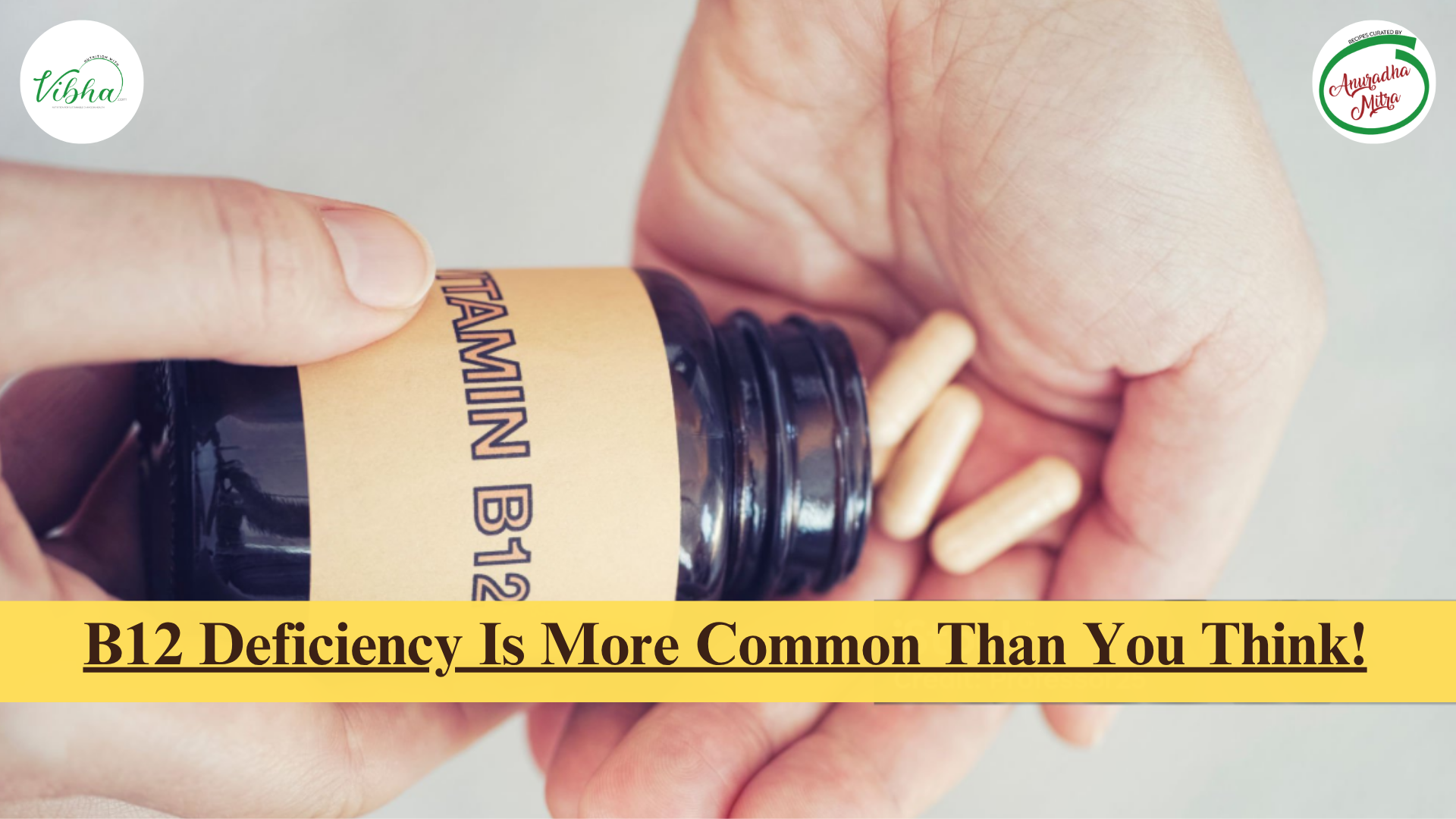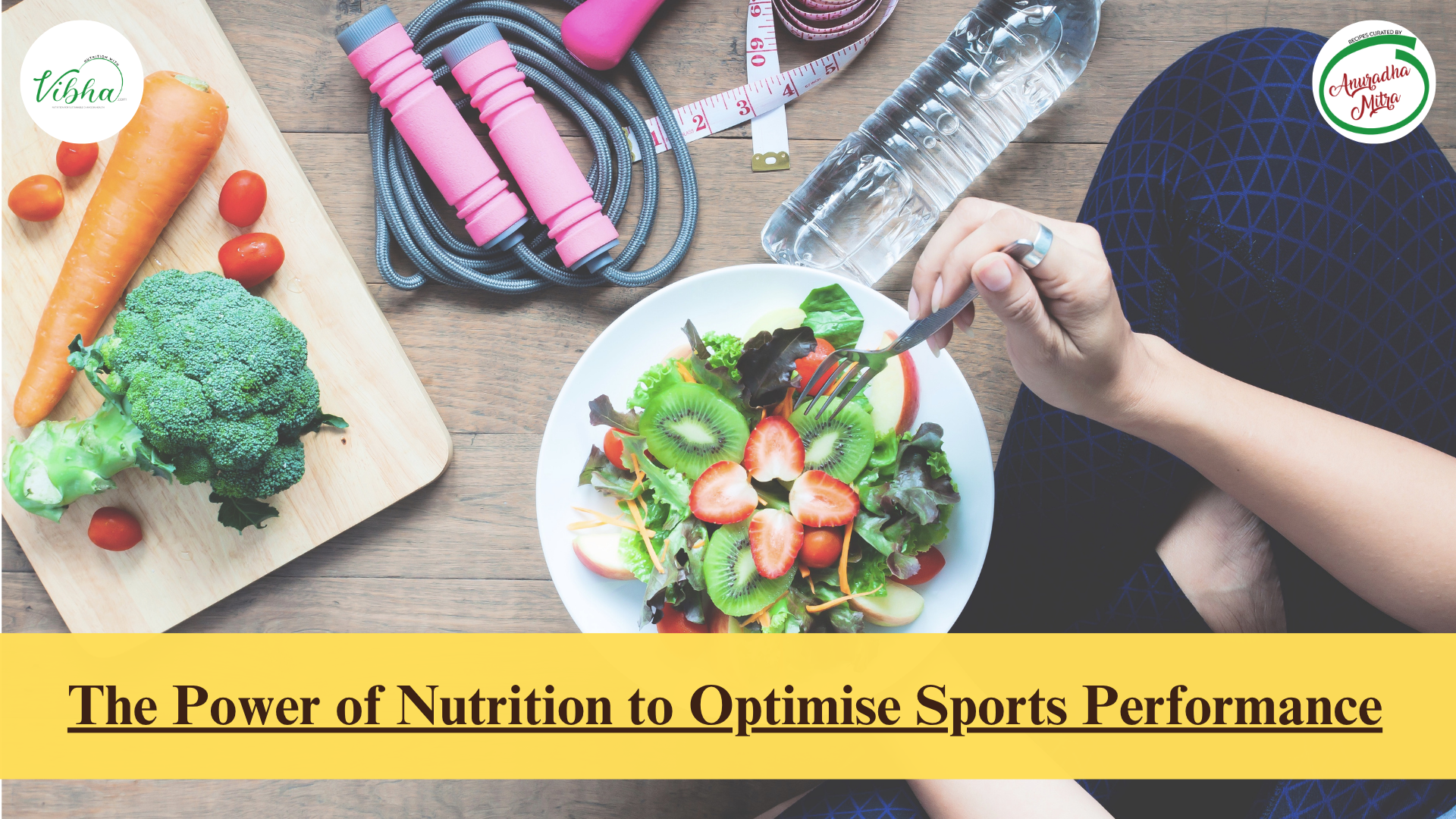Vitamin B12 Deficiency Is More Common in India Than You Think!-Here’s what you need to know

Let’s look at Rajiv, a 60-year-old man who developed numbness, a ‘pins and needles’ sensation, tiredness and fatigue, trouble walking, and joint pain. He initially thought it was an age-related issue, but after taking a blood test, the reason was revealed to be a B12 deficiency.
This may not be relevant to just Rajiv; in fact, many studies report that B12 deficiency is very common in India¹.
This ‘invisible deficiency’ occurs due to insufficient levels of Vitamin B12, also known as Cobalamin. It is a water-soluble vitamin that is involved in forming red blood cells, making DNA, aiding energy metabolism, supporting brain function, and keeping nerves healthy. It can also prevent megaloblastic anemia. It is naturally found in non-vegetarian food sources such as chicken, egg, meat, milk, dairy products, etc. It can be fortified into different food products like cereals, plant milks, etc. Like most vitamins, B12 cannot be synthesized in the body and needs to come mainly from the diet. B12 can be synthesized by the good bacteria present in the gut, which can contribute to the daily requirement. However, to achieve this, one needs to have a good gut microbiome, which can come from maintaining good gut health².
The RDA (2024) for Indians recommends adult males and females (not pregnant/lactating) to consume 2.2 µg every day³.
This is where the problem lies — some either don’t consume enough to fulfill their needs or are unable to absorb enough, no matter how much they take. With age, the ability to absorb also reduces, making elders more prone to its deficiency⁴.
Are you at risk of Vitamin B12 deficiency?
Risk factors for vitamin B12 deficiency include:
- Vegetarians/Vegans: B12 is naturally found in foods of animal origin only, and hence those consuming a completely plant-based diet, like vegans and pure vegetarians, are at absolute risk. Vegetarians who occasionally consume eggs or milk and milk products like ghee, curd, chaas are still far from risk⁵.
- Older Adults: With age, the efficiency of the body to absorb B12 reduces, and if it’s already low in the diet, it can progress very quickly to deficiency⁴.
- Certain Medications: Metformin, a medication for diabetics, reduces the absorption of B12. Histamine H2 blockers and long-term proton pump inhibitors for acidity and reflux can also reduce B12 absorption⁶.
- Health Conditions: Pernicious anemia, Celiac disease, and Crohn’s disease – all can lead to malabsorption and affect B12 levels⁶.
- Stomach or Intestinal Surgery: Bariatric or GI surgeries can impair absorption by affecting intrinsic factor production or intestinal health⁶.
Why does it matter?
Untreated B12 deficiency can cause serious problems like severe anemia, irreversible nerve damage, and cognitive decline. It is therefore extremely important to resolve the issue as early as possible⁴.
What are some symptoms you should look out for?
Vitamin B12 deficiency can be slow to develop, and the symptoms can gradually intensify over time. It may also come on quickly, depending on person-to-person. It is difficult to diagnose B12 deficiency with just symptoms alone, and oftentimes it is mistaken for some other problem. Here are some symptoms to watch for:
- Numbness or tingling in the hands and feet
- Difficulty in walking and maintaining balance
- Symptoms of anemia – weakness, fatigue, etc.
- A swollen tongue
- Difficulty in thinking, remembering, and learning⁴
How to confirm deficiency?
You can consult your physician and get a blood test done checking for serum B12 levels. A complete blood count (CBC) can be done to check for anemia. If the results are borderline or if your symptoms persist despite normal results, you can test for serum methylmalonic acid/homocysteine levels which rise when B12 levels fall⁶.
How to tackle the deficiency?
If you are deficient in B12, your physician may recommend B12 injections if the deficiency is very severe or high-dose supplements (1–2 mg) to restore your levels. However, one cannot fully rely on supplements forever — the diet needs to be worked on to prevent recurrence⁵.
How to improve your B12 levels?
Here are some food sources you can include in your diet to normalize your B12 levels:
- For Vegans: Consider vegan B12 daily supplements or B12-fortified foods like cereals, plant milks, etc.⁵
- For Vegetarians: Include milk, curd, paneer, eggs or fortified foods daily.
- For Non-Vegetarians: Consume eggs, milk, chicken, fish, meat, etc. Try at least 1 boiled egg and a glass of milk daily⁵.
Final Takeaways:
- Your diet is your first defense – Eat B12-rich foods daily or opt for fortified ones.
- Use supplements wisely! – B12 is water-soluble, so excess isn’t harmful, but always consult your healthcare provider.
- Watch your health – Fatigue, weakness, tingling? Get tested early. Regular check-ups are a must for high-risk groups.
👉 For more such credible, actionable information on deficiency diseases and other clinical conditions, refer to your copy of our book The Early Series:
🔗 Click here to get it Today!
It is important to remember that a great and robust diet adequate in all nutrients is enough to help you live a healthy and disease-free life.
Stay Empowered
Stay Nourished
Stay Blessed
References:
- Singla, R. et al. (2019). Vitamin B12 deficiency is endemic in the Indian population. Indian J Endocrinol Metab. https://doi.org/10.4103/ijem.ijem_122_19
- Chakraborty, S. et al. (2018). Prevalence in Indian adolescents. J Hum Nutr Diet. https://doi.org/10.1111/jhn.12541
- RDA 2024.
- Harvard Health (2022). Vitamin B12 deficiency can be sneaky and harmful. https://www.health.harvard.edu/blog/vitamin-b12-deficiency-can-be-sneaky-harmful-201301105780
- Office of Dietary Supplements – Vitamin B12. https://ods.od.nih.gov/factsheets/VitaminB12-Consumer/
- Langan, R. C., & Goodbred, A. J. (2017). Vitamin B12 deficiency: Recognition and Management. AAFP. https://www.aafp.org/pubs/afp/issues/2017/0915/p384.html





